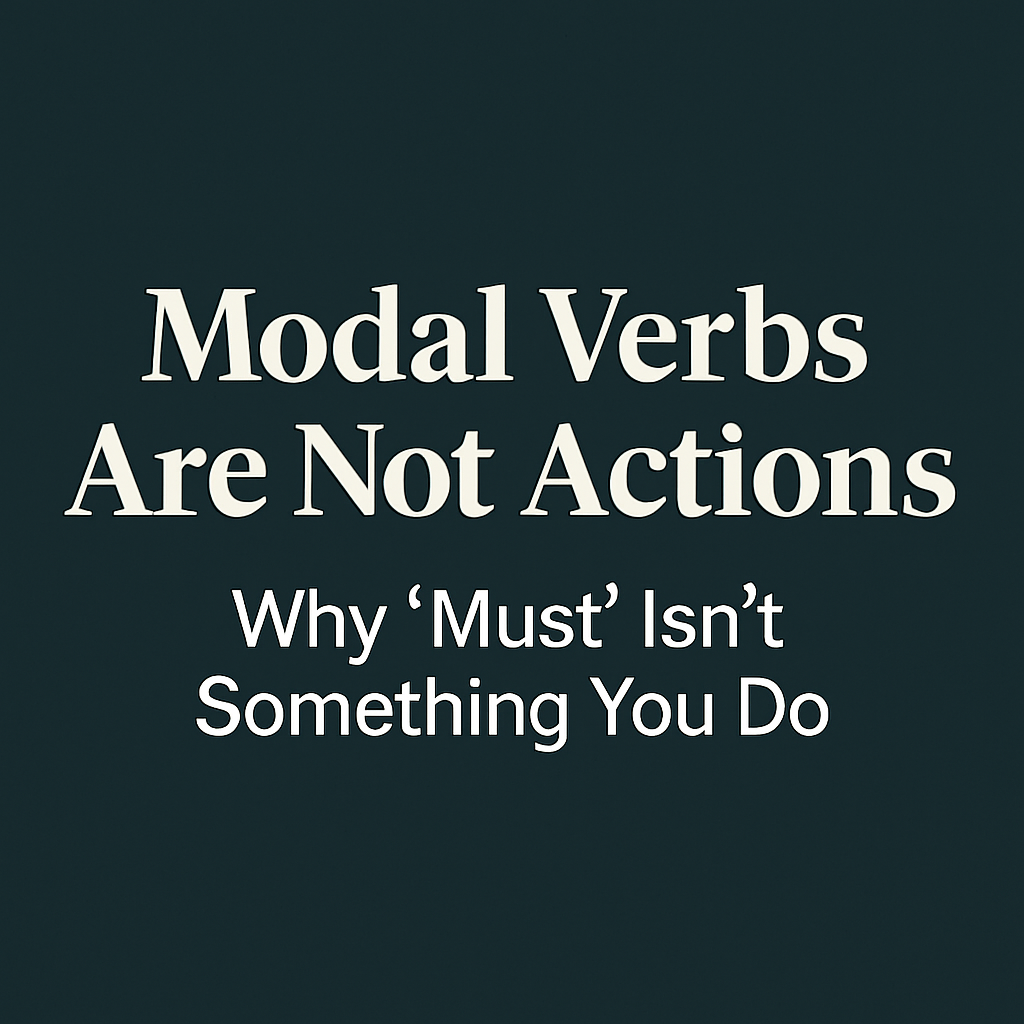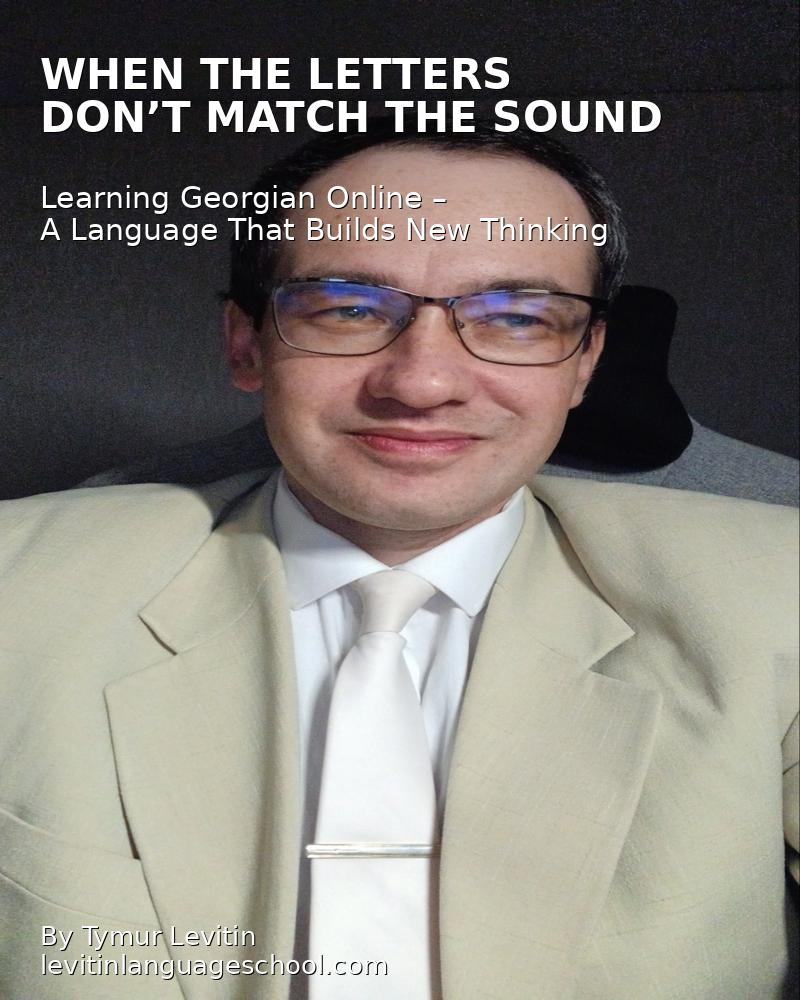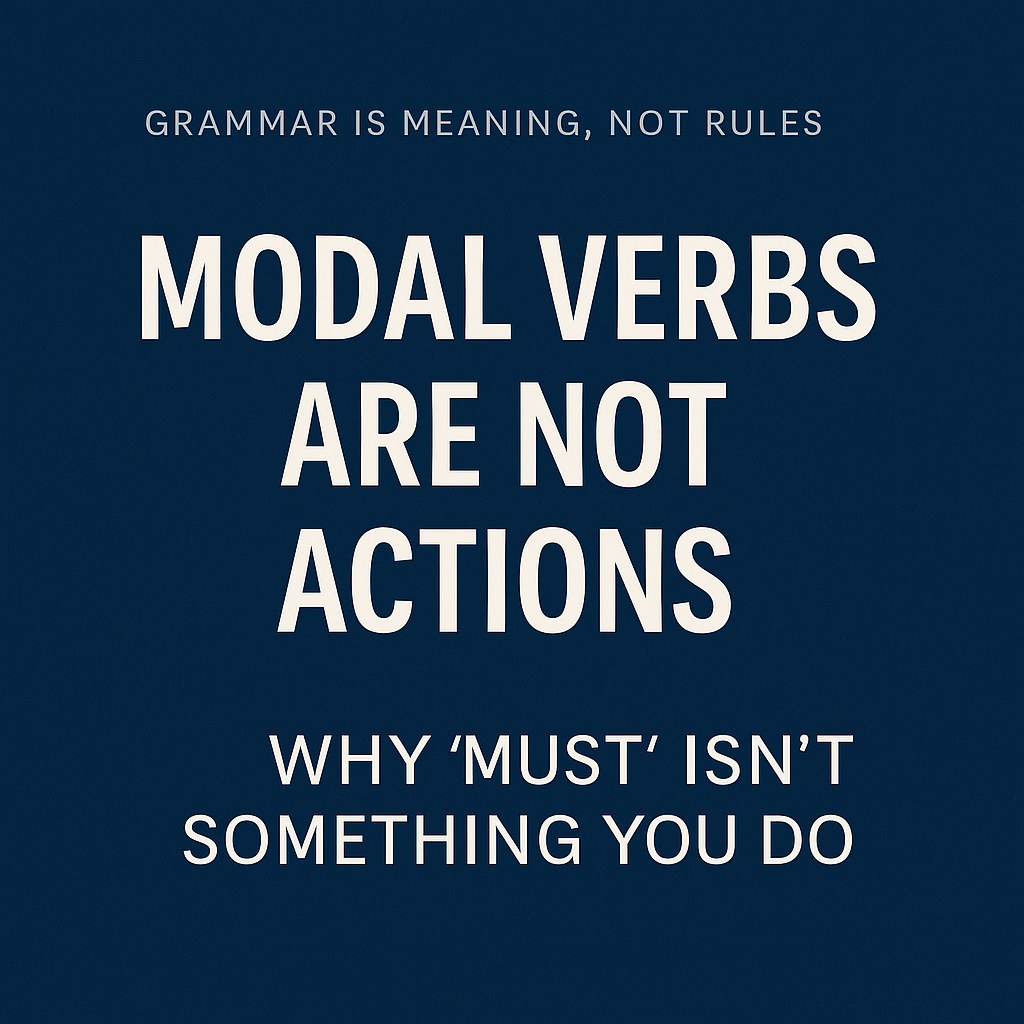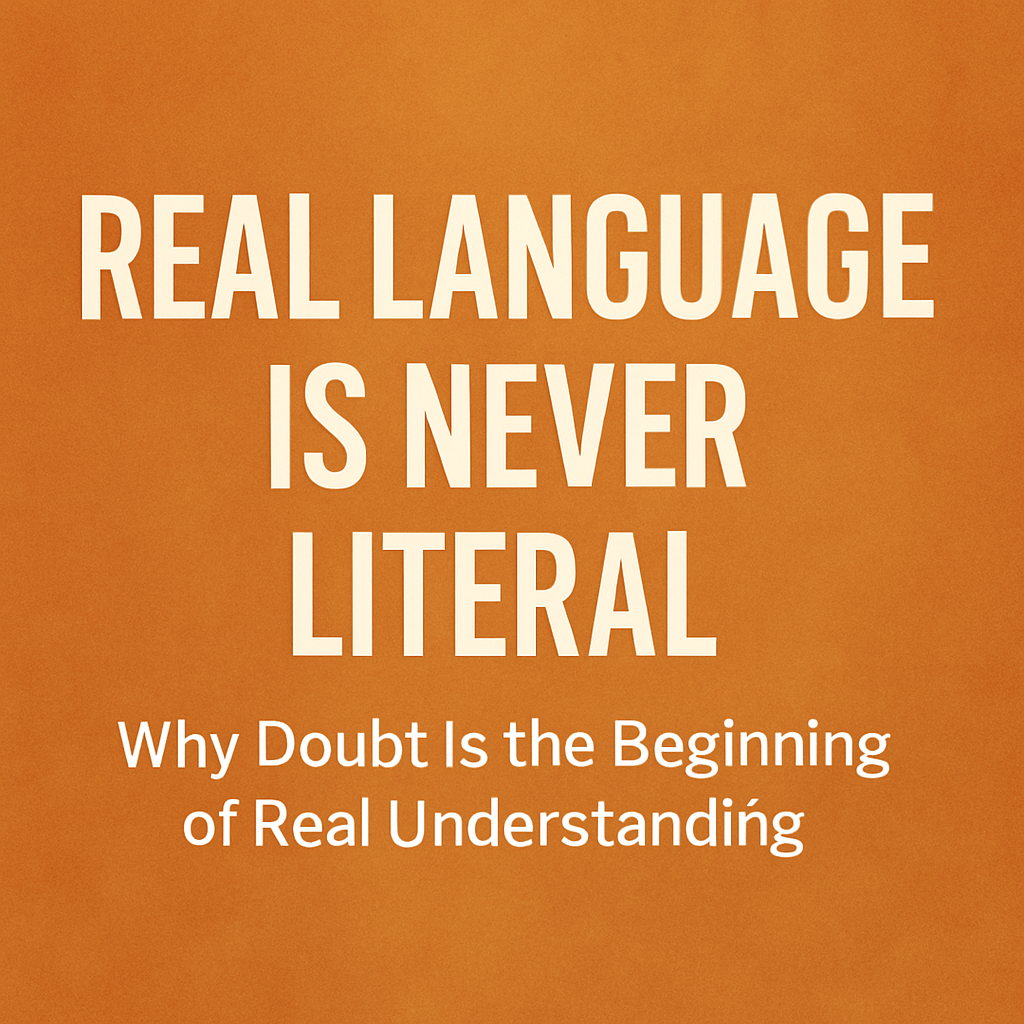Why “Must” Isn’t Something You Do
“A modal verb doesn’t tell you what’s happening.
It tells you what the speaker feels should be happening.”
— Tymur Levitin
Author’s Column — Tymur Levitin on Language, Meaning, and Respect
Part of the series: Grammar Is Meaning, Not Rules
Modality Is Not About the Verb — It’s About the Speaker
In our previous article, we explained that modality means attitude.
It’s how you, as the speaker, position yourself toward an action.
But now it’s time to go deeper:
modal verbs aren’t actions at all.
They describe no physical event, no movement, no real-world result.
You can:
- go
- eat
- sleep
- подумайте
But you can’t:
- must
- should
- май
- ought
Because these aren’t verbs in the real sense.
Они grammatical filters of intention.
So What Is a Modal Verb?
A modal verb is a grammatical tool to express:
- obligation or freedom
- confidence or doubt
- logic or emotion
- internal decision or external pressure
They appear before the real action to color it — like a mental spotlight.
Compare:
- I go → action
- I must go → inner duty
- I have to go → external obligation
- I should go → social expectation or suggestion
- I am to go → formal appointment, schedule
- I ought to go → a strange mix of formality, hesitation, and correctness
Each sentence uses a different type of pressure.
Let’s Break Them Down
MUST
→ internal obligation
I must finish this.
You feel this inside. No one may be watching. But you know — this matters.
Это moral urgency. The voice inside your head.
HAVE TO
→ external obligation
I have to finish this.
Because of the deadline. Because the job requires it.
This is the outside world telling you what must happen. You may agree or not — but you’re forced.
SHOULD
→ suggestion, expectation, advice
You should finish this.
No one will arrest you if you don’t. But it’s advised. Expected.
It’s polite pressure — you can ignore it, but you’ll feel it.
ARE TO
→ formal instruction, often passive
You are to report at 9 AM.
This isn’t up for discussion. It’s protocol.
You don’t choose. You don’t resist.
This structure feels distant, bureaucratic — but authoritative.
OUGHT TO
→ moral + social + polite + formal
You ought to know better.
It sounds judgmental — because it’s a subtle form of scolding.
You didn’t follow the invisible rules — now you’re being reminded.
Why This Matters for Learners
Because learners often ask:
- “Which one is stronger?”
- “What’s the difference between must и have to?”
- “Is should polite?”
And textbooks often say:
“They’re interchangeable.”
But they’re not.
Not emotionally. Not socially. Not psychologically.
We don’t teach what’s correct — we teach what’s meaningful.
A Visual Summary
| Modal | Source of pressure | Tone / Context |
|---|---|---|
| must | inner voice | urgent, personal, moral |
| have to | outer force | required, factual, imposed |
| should | soft social logic | suggested, advised, expected |
| are to | impersonal authority | formal, scheduled, beyond your will |
| ought to | collective judgment | correct, outdated, moral expectation |

Related posts from our blog
→ What Is Modality in Language?
→ Смена времени в переводе: Почему время всегда имеет значение
→ Языковой барьер - это не про язык
→ What If I Had Known?
Об авторе
Tymur Levitin — founder, director, and senior instructor at Levitin Language School / Start Language School by Tymur Levitin
🔗 Знакомство с автором →
© Тимур Левитин. Все права защищены.
























